This if-elif is simple and straightforward. index is a 1-D array with values of 0-5 only. As you can see from the image, the only correct if-elif is only for index[i]==0 and index[i]==1. For index[i]==5, it was supposed to print f but the result was printed as d. What went wrong?
Current output:
for i in index:
print(i)
if index[i]==0:
print(" :a")
elif index[i]==1:
print(" :b")
elif index[i]==2:
print(" :c")
elif index[i]==3:
print(" :d")
elif index[i]==4:
print(" :e")
elif index[i]==5:
print(" :f")
